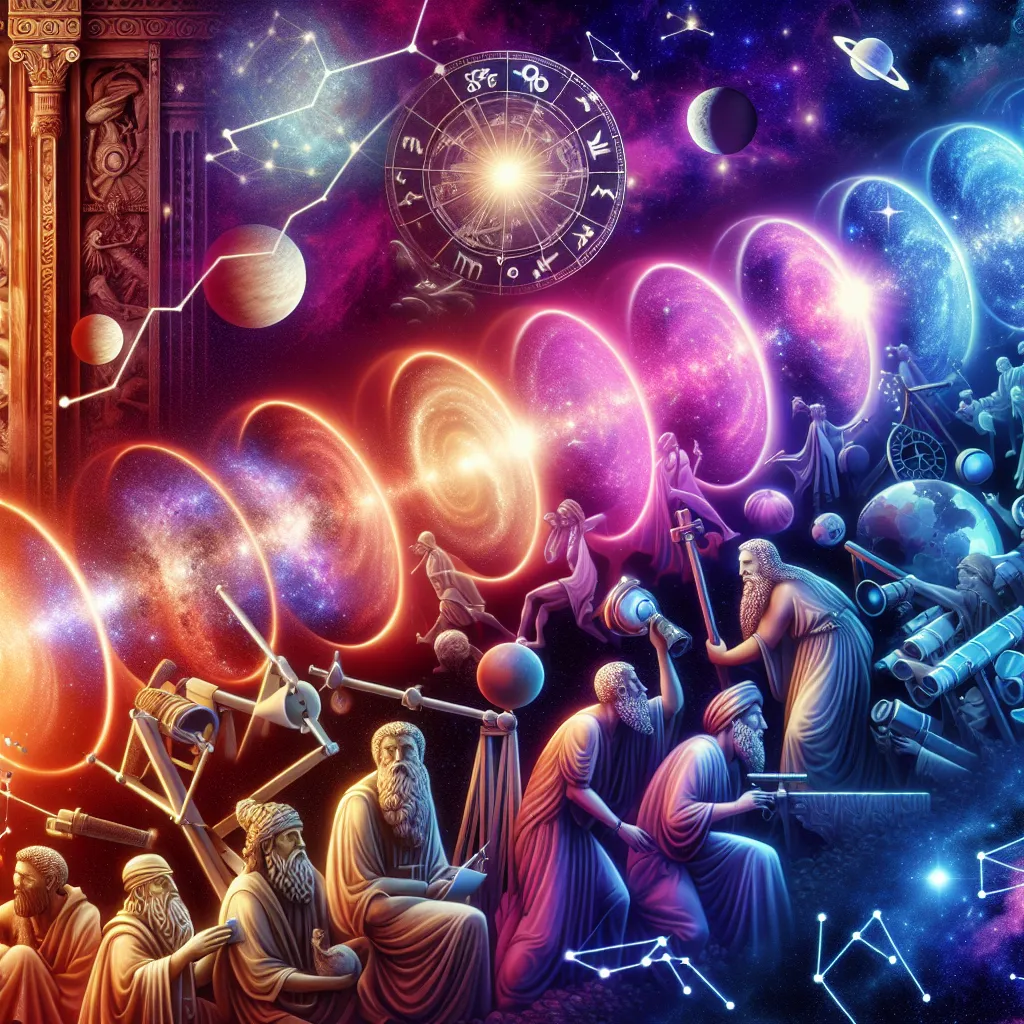
- Published on
- Authors

- Name
- You
The History of Astrology: From Ancient Civilizations to Modern Times
Astrology, a system that claims to divine information about human affairs and terrestrial events by studying the movements and relative positions of celestial objects, has a history that is as rich and complex as humanity itself. This article embarks on a captivating journey through time to uncover astrology's origins, evolution, and its enduring significance in contemporary society.
1. Ancient Beginnings: The Dawn of Celestial Observation
a. Mesopotamia: The Cradle of Western Astrology
| Period | Key Contributions |
|---|---|
| 3000-2000 BCE | Sumerians made the earliest known celestial observations. |
| 2000-1000 BCE | Babylonians developed the first astrological system. |
| 7th Century BCE | Babylonian astrology influences spread to Greece and Egypt. |
Mesopotamian astrology laid the groundwork for Western astrological traditions. The Babylonians, in particular, were keen observers of the night sky, meticulously recording celestial events on clay tablets, which later influenced Greek and Roman astrology.
b. Egypt: Stars of the Nile
Egyptian priests charted the stars to predict the flooding of the Nile, crucial for their agricultural society. They venerated deities like Thoth and Isis, linking celestial patterns to myths and daily life.
2. Hellenistic Flourishing: The Fusion of Cultures
| Cultural Exchange | Impact |
|---|---|
| Greek Conquests | Spread astrological wisdom from Persia and Egypt. |
| Alexandria | The library as a hub for astrological knowledge. |
The conquests of Alexander the Great facilitated a profound cultural exchange, blending Greek, Egyptian, and Babylonian astrological traditions. The city of Alexandria, with its grand library, became a melting pot for astrological scholarship.
3. The Renaissance: Rebirth of Celestial Wisdom
| Influential Figures | Contribution |
|---|---|
| Copernicus | Heavenly computations challenging geocentric views. |
| Kepler | Integrated astrology with early astrophysical laws. |
During the Renaissance, astrology was intertwined with the burgeoning field of astronomy. Figures like Johannes Kepler and Tycho Brahe synthesized astronomical discoveries with astrological practice, leading to profound shifts in both domains.
4. Modern Times: Astrology in the Contemporary World
| Era | Characteristics |
|---|---|
| 20th Century | Astrology resurges with psychological astrology (e.g., Jung). |
| 21st Century | Internet age democratizes access to astrological services. |
Astrology witnessed a resurgence in the 20th century, partly due to the psychological insights of Carl Jung. The internet era further popularized astrology, making personalized charts and daily horoscopes accessible to a global audience.
5. A Harmonious Blend: Science and Mysticism
Astrology remains a unique blend of art, science, and mysticism. While modern astronomy has debunked many astrological claims, the symbolic and psychological insights astrology offers continue to enrich people's lives.
Conclusion
From the ancient ziggurats of Mesopotamia to the digital zodiac charts of today, astrology has navigated through cultures and epochs, evolving yet enduring. Its history is a testament to humanity's relentless curiosity about the cosmos and our place within it.
